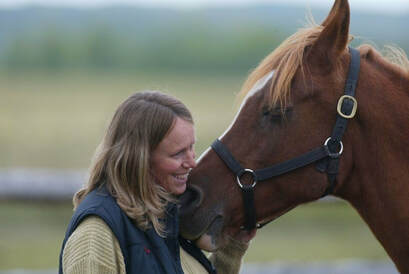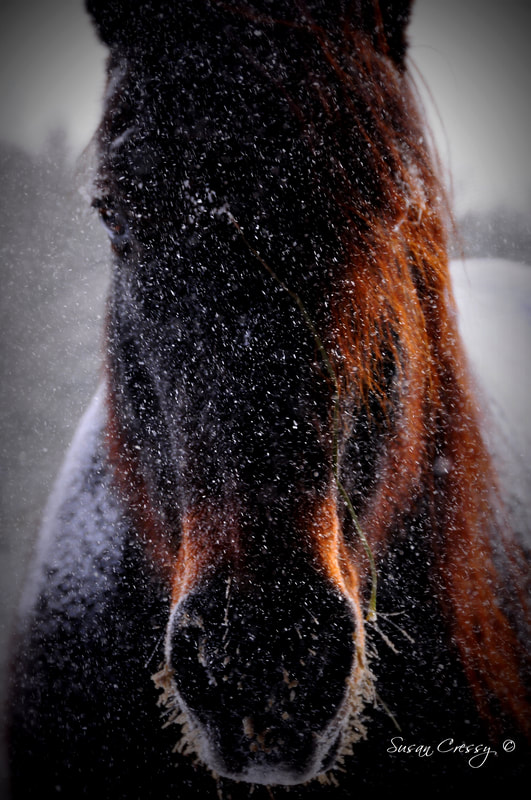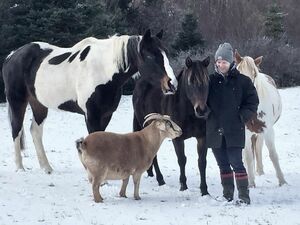|
In this February 2019 issue of our EFW-Can newsletter we have: |
The Quick Answer
No, you don’t! There are several ways to do this work without owning your own facility or horses.
The Longer Answer
While there are certainly some benefits to working from your own facility with your own horses, it is possible (and sometimes preferable) to work from someone else’s facility and/ or with someone else’s horses. This can be particularly beneficial when you are first starting out, if you are still building your equine experience, or if you only plan to work part time or part of the year.
There are several different ways to do this. If you are a Mental Health or Equine Facilitated Learning professional, partnering with an Equine Professional who has the facility and horses can be a great option. That way you bring the human services expertise and they provide the horse expertise (and the horses).
Alternatively, you may have the equine skills but just not the facility and/ or horses. In that case renting time and space at a facility is an option many people have used.
We find that people often meet partners and come up with creative partnerships during training workshops. The facebook group we have created for training participants and graduates is also a great way to make these connections.
There are a number of considerations that are relevant wherever you work, but which usually require some extra thought and planning if you work out of someone else’s facility and/ or with someone else’s horses. These include:
There are several different ways to do this. If you are a Mental Health or Equine Facilitated Learning professional, partnering with an Equine Professional who has the facility and horses can be a great option. That way you bring the human services expertise and they provide the horse expertise (and the horses).
Alternatively, you may have the equine skills but just not the facility and/ or horses. In that case renting time and space at a facility is an option many people have used.
We find that people often meet partners and come up with creative partnerships during training workshops. The facebook group we have created for training participants and graduates is also a great way to make these connections.
There are a number of considerations that are relevant wherever you work, but which usually require some extra thought and planning if you work out of someone else’s facility and/ or with someone else’s horses. These include:
- Client Privacy and Confidentiality: The nature of your work and your client population will impact this consideration but all EFW practitioners need to be able to manage the potential for and impact of interactions with other people when working with a client in an EFW session. This is usually much easier to manage and control if you own the facility. If you work from someone else’s facility, particularly if the property owner or other people regularly access the same space, you will need to discuss this with the property owner.
- Insurance: We will have a subsequent post dealing specifically with this question in question 9 of this series. For now, just note that insurance, which extends to cover the nature of the EFW work you are doing, needs to be in place to cover you, the property owner, and horse owner/s .
- Safety Standards: Ensuring the environment you are working within is safe for your clients, the horses and yourself is important. This includes consideration of many factors including fencing, fire safety, first aid, state of the equipment, and general physical safety of the property. For example, you would not want to be working in a facility where there was loose wiring in the barn, old tractor parts in the yard or barb wire in the arena!
- Horse Care, preparation and debriefing: Again this a big topic which is explored in depth within most EFW training. How the horses are trained and cared for matters, and may be harder for you to influence when they are not your horses. We will explore this topic a little more in our next blog discussing the role of the horse in EFW and Equine Therapy.
 The relationship between the EFW facilitator and equines is an important factor
The relationship between the EFW facilitator and equines is an important factor
You will also want to take time to build and maintain relationships with the horses that you will be working with. This can sometimes be a little harder with other people’s horses, but it is still usually possible.
All of the above considerations are explored in more depth within the distance education and onsite components of theEFW-Can Exploration Training.
Note: If you are unsure of any of the terminology or acronyms we used above please refer to our earlier EFW-Can Newsletter where we defined and reviewed these terms for you.
All of the above considerations are explored in more depth within the distance education and onsite components of theEFW-Can Exploration Training.
Note: If you are unsure of any of the terminology or acronyms we used above please refer to our earlier EFW-Can Newsletter where we defined and reviewed these terms for you.
If you found this article helpful, please share it!
|
Jenna Smith Equine Facilitated Wellness Mental Health Professional [email protected] www.equinesolace.ca Bridgeville, Nova Scotia, Canada |





